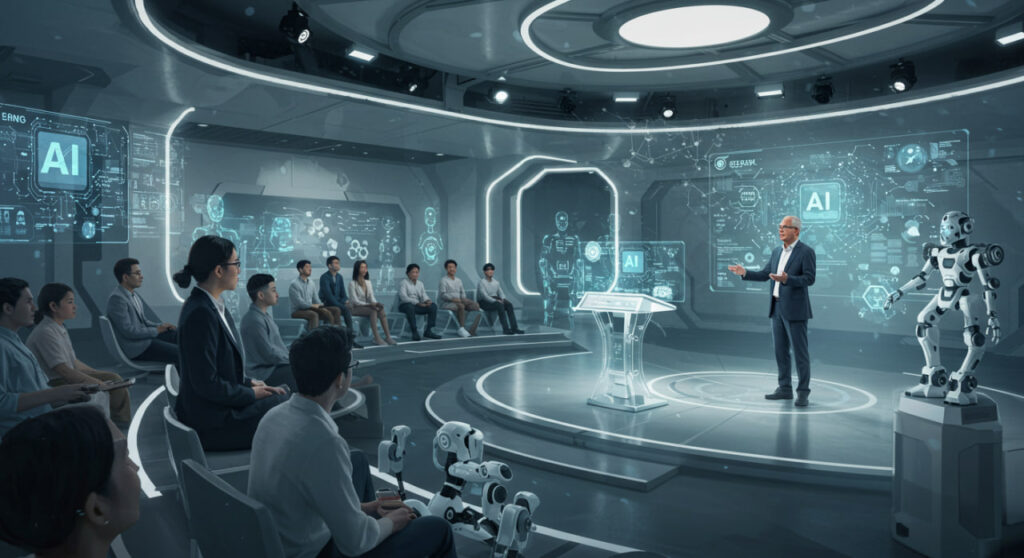The world of artificial intelligence is constantly evolving, with groundbreaking advancements emerging at an unprecedented pace. 2025 has already witnessed several remarkable breakthroughs poised to reshape our technological landscape and daily lives. Let’s delve into some of the most significant milestones achieved this year.
AI-Powered Drug Discovery
One of the most impactful areas experiencing an AI revolution is drug discovery. Researchers are leveraging advanced machine learning algorithms to analyze vast datasets of molecular structures and biological information, significantly accelerating the identification and development of new medications. This technology is not only speeding up the process but also increasing the likelihood of success, paving the way for more effective treatments for various diseases. For example, a recent study published in Nature showcased how AI predicted a potential cure for a rare genetic disorder, highlighting the transformative potential of this field. This breakthrough is expected to improve treatments across various diseases, potentially revolutionizing the healthcare industry. You can learn more about this process by reading our article on AI’s role in healthcare.
Advances in Natural Language Processing (NLP)
Natural Language Processing (NLP) continues to make astonishing strides. We’re seeing increasingly sophisticated AI models capable of understanding and generating human language with remarkable fluency and accuracy. These advancements have led to significant improvements in machine translation, chatbot technology, and content creation tools. For instance, the new GPT-6 model boasts unprecedented capabilities in understanding context and nuance, making it a powerful tool for various applications. The implications for communication and information access are profound. Read more about the future of NLP in our recent feature.

The Rise of Explainable AI (XAI)
One of the critical challenges in the AI field has been the “black box” nature of many algorithms, making it difficult to understand how they arrive at their decisions. However, 2025 has seen significant progress in Explainable AI (XAI), which focuses on developing more transparent and interpretable AI systems. This increased transparency builds trust and allows for better oversight, which is particularly important in high-stakes applications like healthcare and finance. Learn more about the benefits of XAI in our guide to understanding AI decision-making.
AI in Climate Change Mitigation
The fight against climate change is another area benefiting from AI breakthroughs. Researchers are utilizing AI to analyze climate data, predict extreme weather events, and optimize renewable energy resources. AI-powered systems can help monitor deforestation, manage water resources more efficiently, and improve the accuracy of climate models. A recent report by the IPCC highlighted the crucial role of AI in developing climate-resilient infrastructure. The ongoing development in this area is quite exciting. Explore this topic further in our blog post on AI and environmental sustainability.
Enhanced AI Security Measures
With the growing reliance on AI, ensuring its security is paramount. 2025 has seen significant advancements in AI security, including techniques to detect and mitigate adversarial attacks, which aim to manipulate AI systems. These advancements are crucial for protecting AI systems from malicious actors and ensuring the reliable operation of critical infrastructure. Further research is underway to strengthen AI security protocols against future threats.
In conclusion, 2025 has been a year of remarkable progress in the field of artificial intelligence. From revolutionizing healthcare to combating climate change, AI’s impact is undeniable and transformative. As we move forward, it’s crucial to address the ethical and societal implications of these advancements while harnessing their power for the betterment of humanity.
Frequently Asked Questions
What are the biggest challenges facing AI development in 2025? Ensuring AI safety, addressing bias in algorithms, and ensuring equitable access to AI technology are among the biggest hurdles.
How will AI impact the job market in the coming years? While some jobs may be automated, AI is also expected to create new opportunities and transform existing roles, requiring a focus on reskilling and upskilling the workforce.
What ethical considerations are crucial in the development and deployment of AI? Addressing bias, ensuring privacy, promoting transparency, and establishing accountability are critical ethical considerations in AI development.
What are some emerging trends in AI research? Areas such as AI for science, AI safety, and AI ethics are gaining significant traction, driving innovation and shaping the future of the field.
How can individuals prepare for a future shaped by AI? Continuous learning, adapting to new technologies, and developing skills that complement AI capabilities are essential for navigating the changing job market.



